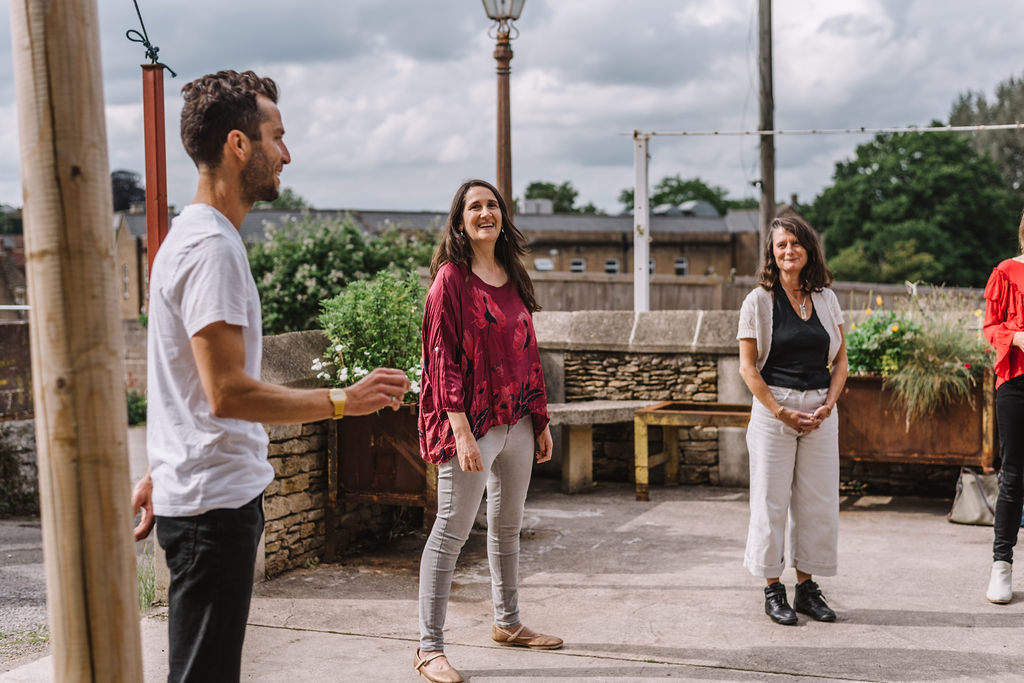
This post explores why fostering the conditions for emergent leadership is an essential move in creating a meaningful and productive workplace culture.
We explore this topic in three parts:
1. What it is, 2. Why it’s important and 3. How to create it.
1. What is emergent leadership?
Emergent leadership is when a member of your team, not in a position of traditional authority, takes the lead on a particular issue they feel passionately about. This person’s actions are supported by those around them and their work positively impacts the rest of the organisation.
Google see it as a key trait for new hires, and Zappos (the online shore store) prefer this kind of leadership to traditional approaches.
For individuals emergent leadership has something of a self-starter quality a bout it. It’s that quality that takes on problems, designs new ways of doing things, leads on internal presentations.
On a collective level it’s about a supportive environment where people are listened to, structures are adaptable, and feedback is used to regularly upgrade operations.
2. Why is emergent leadership important?
Work is undergoing a revolution demanding new kinds of leadership. Organisations seek to become flatter in structure while continuing to offer meaningful leadership opportunities.
Emergent leadership is an outcome supported by both these things: horizontal organisational structure AND meaningful leadership opportunities.
Some of the advantages of creating a cultural system where emergent leadership can take place include:
- Engagement and high-performance across your team as motivation and focus are unlocked
- Retention and attraction of top talent by offering career progression opportunities inside your organisation
- Improved problem solving capacity spread across your system in an inclusive and engaging way
- Enabling a broader and more diverse workforce by re-evaluating what constitutes your ‘core team’
- Transformation of classical leadership which becomes closer to stewardship or facilitation
3. Three steps that create the conditions for emergent leadership.
There are a various conditions necessary for emergent leadership to take place. You can think of it like cultivating a healthy wild-flower meadow.
It doesn’t work if you plant wild-flower seeds in poor soil without the necessary ecosystem to support their growth.
In order for leaders – who are not appointed through traditional methods of role assignation and delineation of authority – to work well, a set of supportive conditions are in place – the ecosystem must be cultivated. Think of it like gardening in three steps.
Step 1
Begin by ensuring there is supportive leadership who are willing to learn how to set appropriate workplace challenges and welcome an experimental approach to problem solving. These same leaders must also polish up their feedback skills to create a quality feedback culture that gives timely, caring and candid support to change processes.
Step 2
This looks for a willing team environment that provides the necessary ‘amplifying actions’ for emergence to take place. Amplifying actions are those that support new approaches to traditional problem solving. It’s also essential for the team to feel psychologically safe so that people are willing to take risks and experiment as they grow into their new roles.
Step 3
Finally seek to empower individuals within your system to rise up, take action and feel able to play the Hero / Heroine. This means that they sense the self-organising capacity of your team and are ready to make bold moves in times of uncertainty or ambiguity. Often these individuals benefit from 1-1 coaching support helping them not take things personally, see the bigger picture and address systemic change at the root.
One of the fantastic individuals I’ve been working with inside Wholegrain Digital (where I’m their team coach) recently shared this feedback on a session. We’ve worked together to redefine her role, create new kinds of accountability, and expand her capacity and skillset into new kinds of leadership and authority. She is the archetypal emergent leader and it’s a real pleasure to witness her flourishing.

At Treeka we deliver cultural change programmes designed to enable emergent leadership by fostering the right set of conditions.
If this kind of work is of interest to you then please get in touch with us. It’s always a pleasure to connect with other leaders thinking in the same direction. I promise no sales pitch or marketing strategy – just a pleasure in making new connections while we all explore this new and exciting field.
